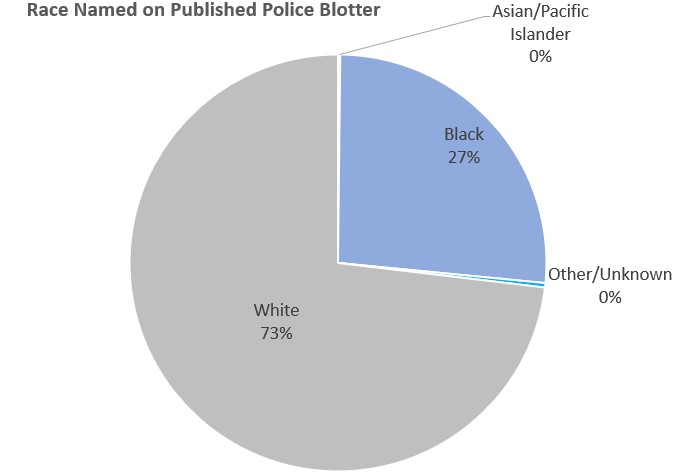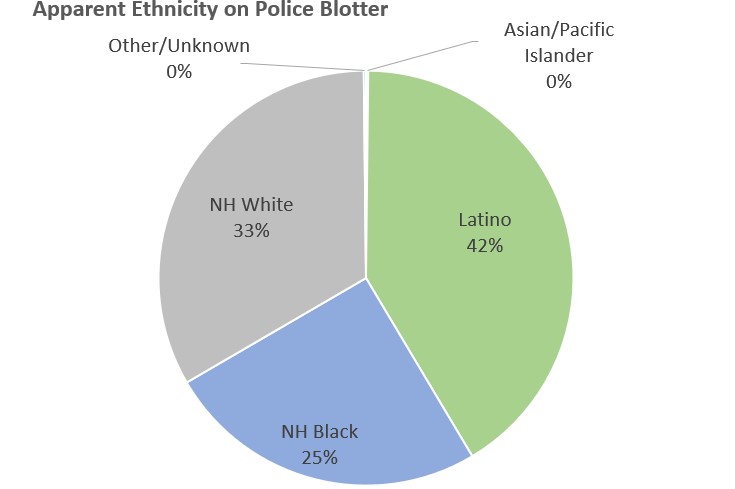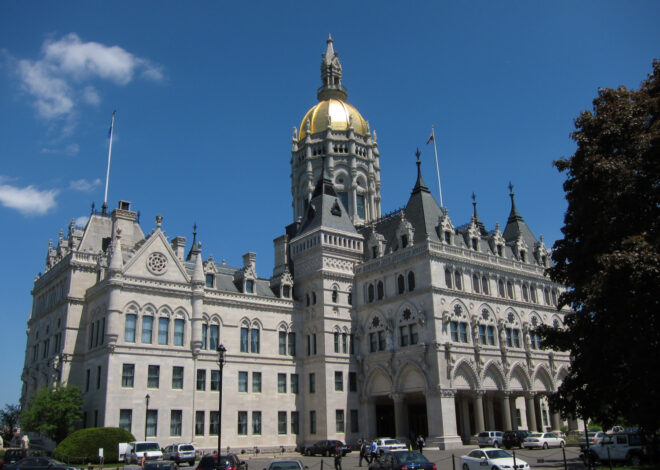Police blotter lists published by the city appear show list most Latinos arrested as white, listing ‘race’ but not ethnicity.
The police blotter lists published by the city that have this demographic information appear to show that 73% of the people arrested in the periods covered by these reports were white and 27% were Black.

The data appear to reflect a similar demographic categorization used by the United States Bureau of the Census, in which ‘race’ and ethnicity are separate categories. People, under this system, can be categorized, for example, as Hispanic white, Hispanic Black, non-Hispanic Black and non-Hispanic white.
But, while the published police blotters show ‘race’ and ‘sex’, they do not show ethnicity.
A New Britain Progressive analysis of the names on the lists appears to show that most of the people listed as white had names that indicate they they may be Latino. This analysis, done solely by names, is imperfect and is likely not to be completely accurate.
That data appears to show that only a third of people arrested would be considered as non-Hispanic white, while more than 40% appeared to be Latino. The analysis showed one-quarter of those arrested as being non-Hispanic Black.

The analysis appears to show that two-thirds of the people arrested during the periods covered by the police blotters that included demographic data were Black, Latino or Asian/Pacific Islander, rather than non-Hispanic white, something that would not be readily apparent from the police blotters, as published.
The city began publishing the police blotter in August, after a controversy in which another publication was denied free access to the police logs. At least one City Council member suggested that the city Police’s disapproval of press editorial policies contributed to revoked free access for the press to the Police blotter. Then-Ald. Peter Scirpo (R-1), who has been a New Britain Police officer, himself, said that, the press, “don’t have the right to pick and choose who makes it in the paper and who doesn’t,” and commenting that, “As soon as they find out a cop did something wrong, they are all over the city of New Britain.”
Because of the change in the release of arrest records, the New Britain Racial Justice Coalition had filed a formal Freedom of Information request to gain public access to the police records. The city then decided to publish weekly blotter reports on its website.
The New Britain Progressive newspaper, as part of its community news coverage in New Britain, is publishing the New Britain Police blotter, which can be found at newbritainindependent.com/police-blotter, where police blotter entries are regularly published, and remain published, even after no longer appearing on the city Police website.



